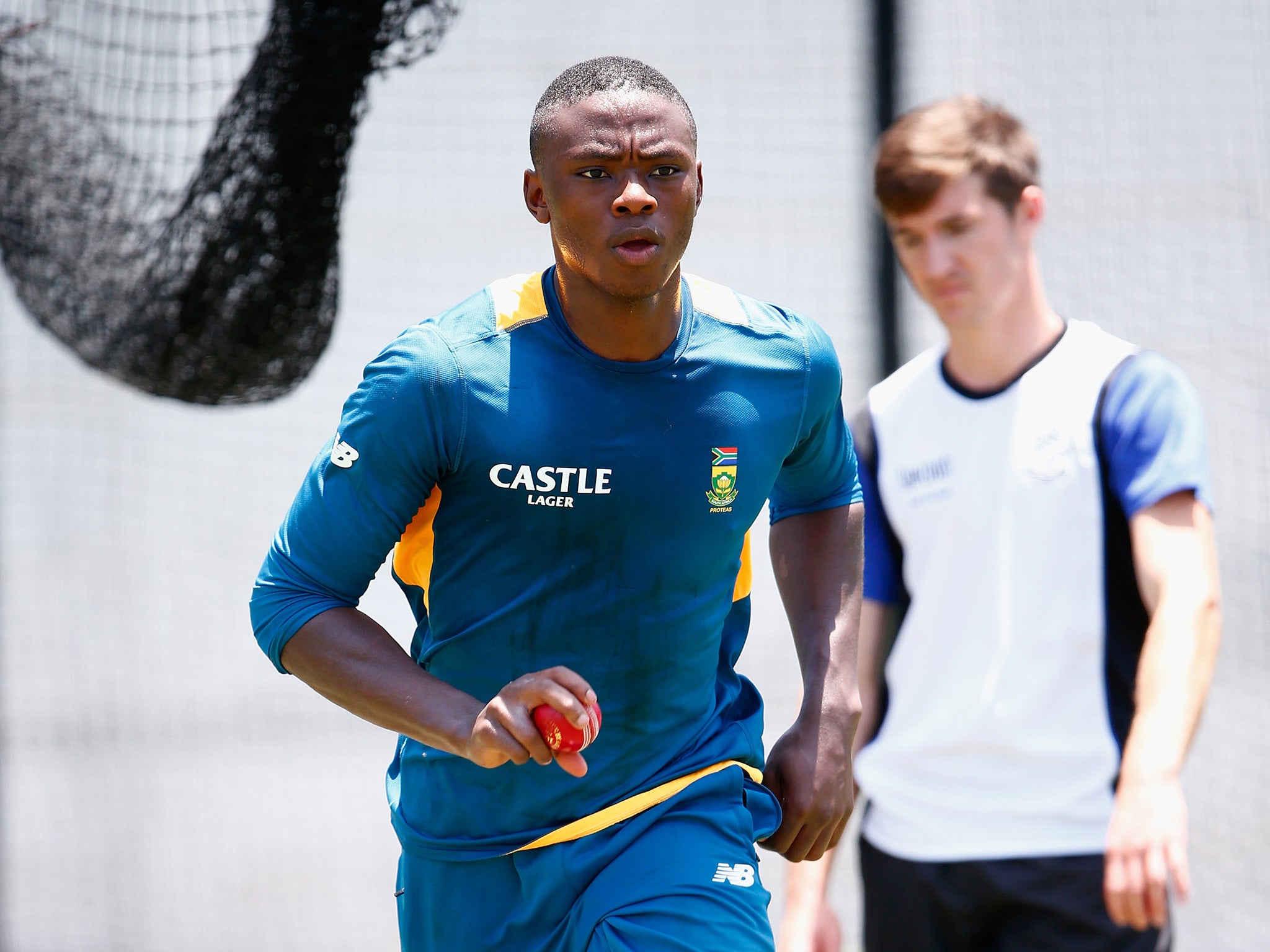South Africa vs England: Kagiso Rabada raises an air of expectation as he prepares to step in
Springbok greats drool about new black fast-bowling hope

Your support helps us to tell the story
From reproductive rights to climate change to Big Tech, The Independent is on the ground when the story is developing. Whether it's investigating the financials of Elon Musk's pro-Trump PAC or producing our latest documentary, 'The A Word', which shines a light on the American women fighting for reproductive rights, we know how important it is to parse out the facts from the messaging.
At such a critical moment in US history, we need reporters on the ground. Your donation allows us to keep sending journalists to speak to both sides of the story.
The Independent is trusted by Americans across the entire political spectrum. And unlike many other quality news outlets, we choose not to lock Americans out of our reporting and analysis with paywalls. We believe quality journalism should be available to everyone, paid for by those who can afford it.
Your support makes all the difference.Excitement always arrives in town at the same time as a new fast bowler. Kagiso Rabada is this one’s name and there is an unalloyed sense of anticipation about what he might do for the imminent prospects of the team and the long-term viability of the game in this country.
Rabada is 20 years old, he bowls at 90mph, he is tall, black, confident, affable, strong, smart and ambitious. There is a lip-smacking element to the judgements passed about his talent and potential. All of it is swiftly diluted by cautionary caveats about limiting expectations, of carefully monitoring his work, which amounts pretty much to saying that this guy could be a saviour.
Speaking of Rabada last week, Shaun Pollock, one of South Africa’s finest fast bowlers, said: “He is a real find and he will go from strength to strength. He struggled a little with the surfaces in India, they were never really going to suit him too much, but he has been absolutely awesome in the one-day arena, and on our pitches in South Africa he could be a real handful.”
Not many riders there.
Rabada will play against England in the second Test today following three inconsequential appearances in South Africa’s disastrous series in India. He has been promoted at this low point in his country’s fortunes because of injuries to the premier bowler, Dale Steyn, and his long-time sidekick, Vernon Philander.
But it was always simply a matter of when. Rabada is everyone’s idea of what a sleek speed merchant should look like and observers are falling over themselves trying to avoid making comparisons with Pollock, Steyn, Michael Holding or Malcolm Marshall.
He might have arrived in the nick of time. South Africa are the No 1-ranked Test side in the world, with a few stonking performers and a measured captain in Hashim Amla, but they cannot dispel the perception of a team (and a sport) in decline and disarray.
There is no money around to speak of, the quota protocols continue to bedevil the system at quasi-professional level and beyond, causing perplexity and annoyance equally. It is blindingly obvious that cricket needs a stellar black performer. There have been a few distinguished black players since the transformation of the country in 1992 – Ashwell Prince and Alviro Petersen with the bat, Lonwabo Tsotsobe and above all Makhaya Ntini with the ball – without any evidence of glass ceilings being smashed. Enter Rabada.
The son of a lawyer and a doctor, he was educated at St Stithians in Johannesburg (alma mater, coincidentally, of the New Zealand cricketer Grant Elliott and the Hollywood director Gavin Hood), where he impressed first as a cavalier batsman. But his natural bowling (“I was just told to keep my arm straight and I was like, ‘OK’,” he told an interviewer) soon took over.
He created a notable impression at the Under-19 World Cup in 2014, when he took 6 for 25 in South Africa’s semi-final against Australia, and played his first Twenty20 matches in November that year.
Last June, he played his first one-day international and burst through Bangladesh’s batting in Dhaka. His figures of 6 for 16 were the best by any bowler on debut in an ODI. On the tour of India, when South Africa were dismantled in the Test series, it has rather been overlooked that they won a captivating ODI series 3-2, which probably meant more to both countries.
In a tense opening match, Rabada was entrusted with bowling the final over, with India needing 11 to win. He conceded only five and took two wickets, including MS Dhoni. Of such stuff are legends born.
It was almost a squandering of talent (let alone a negation of responsibility) then to throw him into the Test series on a series of rigged, turning pitches. Rabada was economical enough, his 49 overs yielding only 111 runs. His first Test wicket came in Chandigarh when he spoiled Virat Kohli’s birthday by somehow persuading India’s captain to drive off the leading edge to cover. (Not a bad first three in all formats of the game: in T20 Gavin Maxwell, in ODIs Tamim Iqbal, in Tests, Kohli, for 0,0 and 1 respectively).
Today, England. South Africa can hardly wait.
Join our commenting forum
Join thought-provoking conversations, follow other Independent readers and see their replies
Comments